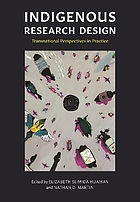
Do you need assistance with finding sources, critiquing and evaluating sources for credibility, or citations? Book an appointment with one of our Librarians!
Be mindful when using information collected from Indigenous Peoples. While current research practices regarding Indigenous Peoples are improving in Canada, historic works seldom respect Indigenous Intellectual Property. APA citation cautions researchers to evaluate published works to ensure that information is both accurate and appropriate to use prior to citing. Indigenous Knowledge comes with a variety of Cultural Protocols which may limit who can share information, when it can be shared, and with whom it may be shared. Because cross-cultural information exchanges increase the likely hood of misrepresentation, it is vital to confirm that your work upholds the integrity of Indigenous perspectives.
By maintaining authority over data and information, Indigenous communities are in a position of power within colonial society, which has sought to exploit cultural expressions, Traditional Knowledge, and other information for profit or other purposes. In researching or conducting research with/about Indigenous communities, it's vital to recognize the sovereignty and rights of communities to allow or withhold access to information as deemed appropriate by the communities themselves.
Communities may have strict internal rules that limit how, when, or to whom information can be shared. It may be the case that cultural knowledge (such as spiritual practices, traditional stories, histories, etc.) may only be shared with members of the community, at certain times of year, or only with people of certain genders.
A community's protocols around information sharing are to be respected regardless of the researchers' perceived need for information. In general, Elders, Knowledge Keepers, Cultural Advisors, and other community members should not be prodded to share information with outsiders beyond that which is offered.
An article arguing for a fundamental disturbance of the Western logics of statistical data the article details recent developments in the field including the emergence of the Indigenous Data Sovereignty movement.
NWP's Indigenous Education Protocol
"Northwestern Polytechnic honours and acknowledges the sovereignty of Indigenous peoples, including First Nations, Métis, and Inuit, who are the original stewards of this land. We recognize the history of Turtle Island and respect the diverse cultures, languages, histories, experiences, and perspectives of Indigenous peoples and communities."
Decolonizing Data explores how ongoing structures of colonialization negatively impact the well-being of Indigenous peoples and communities across Canada, resulting in persistent health inequalities.
This essential volume explores intersections of imperialism and research - specifically, the ways in which imperialism is embedded in disciplines of knowledge and tradition as 'regimes of truth.' Concepts such as 'discovery' and 'claiming' are discussed and an argument presented that the decolonization of research methods will help to reclaim control over indigenous ways of knowing and being.
Indigenous researchers are knowledge seekers who work to progress Indigenous ways of being, knowing and doing in a modern and constantly evolving context. This book describes a research paradigm shared by Indigenous scholars in Canada and Australia, and demonstrates how this paradigm can be put into practice.

Indigenous Research Design is an interdisciplinary text that explores how researchers reimagine research paradigms, frameworks, designs, and methods. This volume aims to inspire new and Indigenous-led ways of thoughtfully developing research questions, conceptualizing qualitative research paradigms, and collecting, analyzing, and disseminating data.
This ground-breaking edited collection provides readers with concrete and in-depth examples of how to overcome the challenges of Indigenous research with respect to Indigenous worldviews, epistemologies, and ontology.

Concise and accessible, it is an ideal supplementary text as well as a core component of the methodological toolkit for anyone conducting Indigenous research or using Indigenous population statistics. This is an essential text for students studying quantitative methods, statistics and research methods.